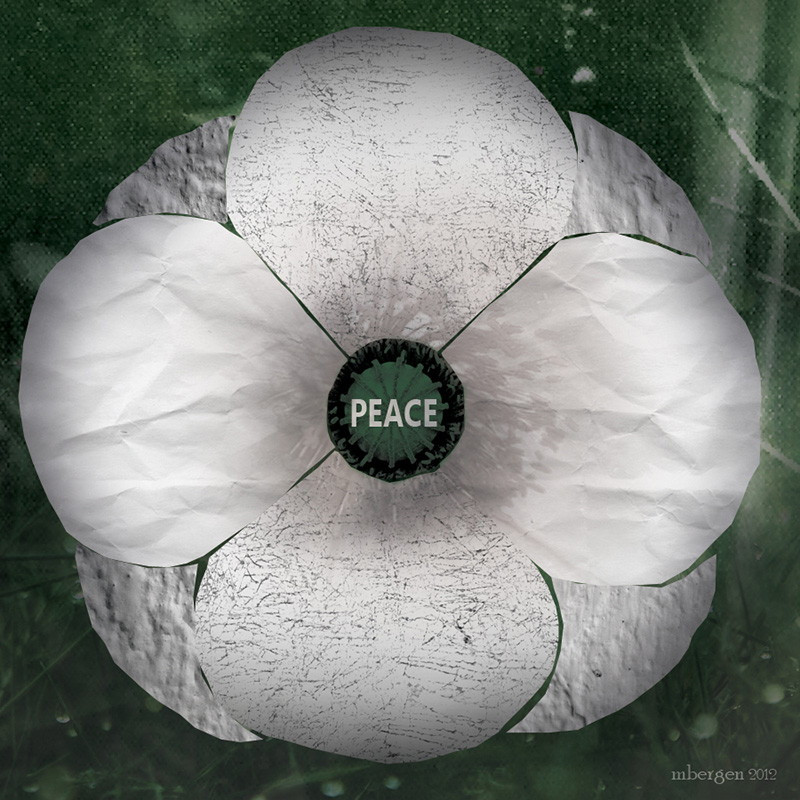Lest we forget
Remembrance Day message should be ‘never again,’ not celebration of militarism
“I spent 33 years and four months in active military service and during that period I spent most of my time as a high class muscle man for Big Business, for Wall Street and the bankers.”
- Decorated Major General Smedley Darlington Butler (1935)
The Americans call it Veterans Day.
In Canada and the Commonwealth nations it is known as Remembrance Day.
It has been referred to as Poppy Day.
But it was originally known as Armistice Day.
It commemorates the occasion when on the 11th hour of the 11th day of the 11th month of the year 1918, the Allies of the First World War and Germany signed the Armistice that formally brought an end to four years of war.
Nearly a century later, western culture at large underestimates and under-appreciates just how profound a psychological impact that war, known at the time as the Great War, had on human society.
During a book launch at the University of Winnipeg last year, celebrated anthropologist and National Geographic Explorer in Residence Wade Davis described the Great War as a threshold between a world of certainty and order, and a world of chaos.
The immensity of the horror and rivers of blood generated by that global nightmare left no one unscathed and impacts us generations later.
He put it this way: “Everything you think of in your life today as a so-called modern person, every sense of uncertainty, every existential moment of angst, every neurotic impulse, every sense of doubt really was born in the mud and the blood of Flanders.”
The First World War brought home for people the sense of the grim and gruesome reality of war.
The mentality of the time, and the impression of Remembrance Day I was raised with in the ‘70s and early ‘80s, was that war was something to be avoided at all costs.
My impression is that in the last two decades, and particularly since 9-11, this sense of regret, dread and “never again” has been overshadowed by a celebration and valorization of the soldier.
Once an occasion to mobilize against war, Remembrance Day is moving in the direction, I believe, of embracing and celebrating militarism.
Our young people are growing up with a view of the soldier as a kind of Christ-like figure, sacrificing his or herself on a foreign battlefield for our freedoms.
With all due respect to the families who have endured the loss of a loved one in a military conflict, I don’t quite share that view of the soldier.
The military, as an institution is an arm of state power.
The state, as an institution, is geared toward carrying out policies that benefit the most powerful elements of our society, which in a capitalist society would be the major corporate interests.
“Freedom” and “democracy” function only as useful propaganda tools for mobilizing the tax-paying, cannon-fodder fueling public who’s consent, tacit or overt, is necessary to enable the state to continue its military activities.
I believe that most of the wars we’ve seen in the last 200 years are driven by imperialism - quests to harvest resources in foreign lands for the benefit of domestic power brokers.
For example, in Afghanistan, I don’t see how Canadian soldiers protecting a natural gas pipeline route has anything to do with my freedoms.
Not too long ago, our distinguished Foreign Affairs Minister John Baird announced that Canada was cutting its diplomatic ties with Iran at a time when tensions with that country are stretching to the breaking point.
Likewise, Mr. Baird’s government is breaking records with spending on military arsenal and investment in our military-industrial complex.
Are these truly the actions of a government responding to the Remembrance Day refrains about “never again” and “lest we forget”?
I will refrain this year from wearing the traditional red poppy, with all its associations with military pageantry.
I will instead wear the white peace poppy, if it should become available.
This symbol is a more accurate reflection of my sympathy for military and civilian casualties of war, and of a commitment to put an end to war, before war puts an end to us.
Michael Welch is a science student, news director at CKUW 95.9FM and host of the Global Research News Hour.
Published in Volume 67, Number 10 of The Uniter (November 7, 2012)







